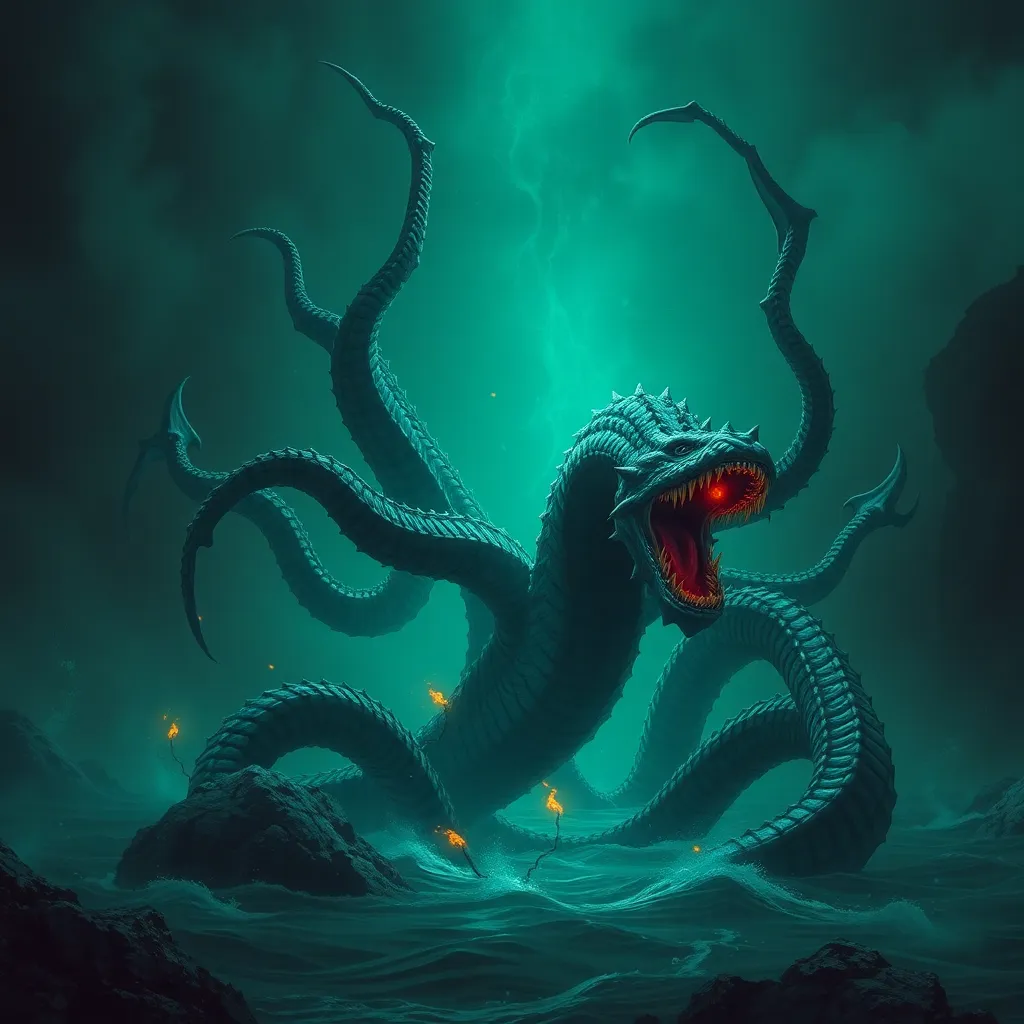The Most Influential Myths of Ancient Deities and Their Teachings
I. Introduction
Myths are traditional stories that explain the beliefs, values, and practices of a society. They serve as a lens through which ancient cultures understood the world around them, providing insight into their worldview and cultural norms. The significance of deities in these myths cannot be overstated, as they often embody the ideals and fears of the people who worshipped them.
This article aims to explore some of the most influential myths of ancient deities and the teachings derived from them. By examining various myths across different civilizations, we can uncover the universal themes that resonate throughout human history.
II. The Role of Myths in Ancient Societies
Myths played a crucial role in shaping the cultural norms and identities of ancient societies. They served several functions:
- Shaping Cultural Norms: Myths provided a framework for understanding moral values and social expectations.
- Symbolizing Natural Forces: Deities often represented natural phenomena, helping people comprehend and relate to the environment.
- Preserving History and Tradition: Myths acted as oral histories, passing down important events, cultural practices, and collective memories from generation to generation.
III. Prominent Ancient Civilizations and Their Deities
Throughout history, several ancient civilizations have produced rich mythologies featuring a pantheon of deities. Some of the most notable include:
- Greek Civilization: A complex system of gods and goddesses, each representing various aspects of life.
- Egyptian Civilization: Deities associated with the afterlife, nature, and the cosmos.
- Norse Civilization: Myths focusing on valor, fate, and the end of times.
- Mesopotamian Civilization: Early myths that laid the foundations for civilization and governance.
Each of these civilizations had key deities that played significant roles in their respective mythologies.
IV. Greek Mythology: The Pantheon of Power and Morality
Greek mythology is renowned for its rich tapestry of gods and goddesses, each with distinct personalities and attributes.
A. Zeus and the Concept of Authority and Justice
Zeus, the king of the gods, symbolizes authority and justice. His myths often convey the importance of leadership and the consequences of ruling unjustly.
B. Athena and the Embodiment of Wisdom and Strategic Warfare
Athena represents wisdom, courage, and strategic warfare. Her role in myths emphasizes the value of intelligence and strategy over brute force.
C. The Lessons of Hubris and Fate
Myths such as those of Icarus and Oedipus teach vital lessons about hubris and the inescapable nature of fate. Icarus’s flight too close to the sun serves as a warning against overreaching ambition, while Oedipus’s tragic downfall illustrates the consequences of defying fate.
V. Egyptian Mythology: Life, Death, and the Afterlife
Egyptian mythology is deeply intertwined with the concepts of life, death, and the afterlife.
A. Osiris and the Cycle of Resurrection and Renewal
Osiris, the god of the afterlife, embodies the themes of resurrection and renewal. His story highlights the cyclical nature of life and death, reflecting the agricultural cycles of the Nile.
B. Isis as a Symbol of Love, Magic, and Motherhood
Isis represents love, magic, and motherhood. Her narrative emphasizes the importance of family and the protective qualities of a mother.
C. The Teachings of Moral Order through Ma’at
Ma’at, the goddess of truth and justice, represents the moral order of the universe. The weighing of the heart against her feather in the afterlife symbolizes the importance of living a virtuous life.
VI. Norse Mythology: Valor, Fate, and the End of Times
Norse mythology is characterized by its themes of valor, fate, and the cyclical nature of existence.
A. Odin and the Pursuit of Knowledge and Sacrifice
Odin, the chief god, is associated with wisdom and sacrifice. His quest for knowledge often required him to make significant personal sacrifices, teaching the value of learning and experience.
B. Thor as a Representation of Strength and Protection
Thor, the god of thunder, symbolizes strength and protection. His stories often highlight the importance of courage and defending one’s community.
C. The Concept of Ragnarok
Ragnarok, the prophesied end of the world, illustrates the Norse belief in fate and renewal. It teaches that destruction can lead to new beginnings, a cycle of death and rebirth.
VII. Mesopotamian Myths: The Foundations of Civilization
Mesopotamian mythology is foundational to understanding the development of early civilization.
A. Enuma Elish and the Creation of the World
The Enuma Elish is a creation myth that describes the origins of the world and the rise of the god Marduk. It emphasizes the importance of order and hierarchy in society.
B. Gilgamesh and the Quest for Immortality
The Epic of Gilgamesh explores themes of friendship, mortality, and the human condition. Gilgamesh’s quest for immortality ultimately teaches that life’s meaning lies in our relationships and our legacies.
C. The Teachings of Community and Civilization
Through the stories of deities like Marduk and Ishtar, Mesopotamian myths convey essential teachings about community, governance, and the balance of power.
VIII. Indigenous Beliefs: Harmony with Nature and the Spirit World
Indigenous mythologies around the world emphasize the importance of harmony with nature and the spirit world.
A. Overview of Various Indigenous Mythologies
From Native American to Aboriginal Australian beliefs, these mythologies often feature stories that highlight the interconnectedness of all living beings.
B. The Teachings of Balance and Respect for Nature
Many indigenous myths include animal deities and spirits, teaching respect for nature and the environment. These stories foster a sense of responsibility towards the earth and its creatures.
C. The Significance of Oral Traditions
Oral traditions play a vital role in preserving these teachings, ensuring that each generation learns from the wisdom of their ancestors and maintains their cultural identity.




